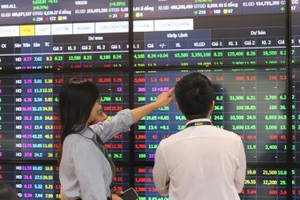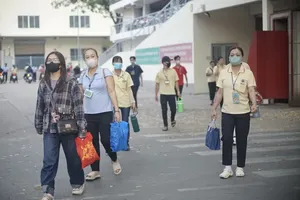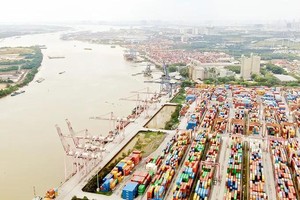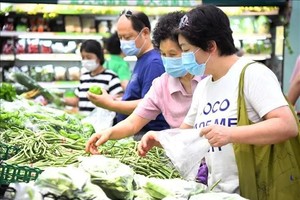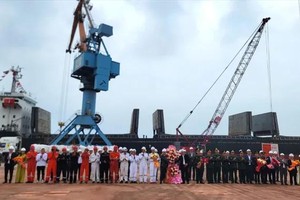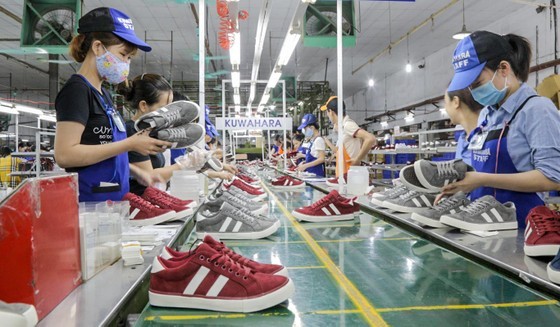 |
Illustrative photo |
In a talk with Saigon Investment, Dr. Vo Tri Thanh, a member of the National Monetary and Financial Policy Advisory Council, emphasized the all-important role of public investment in the growth of the economy in 2023, and in order to support this growth it will be necessary to bring in flexible policies.
Journalist: - Sir, what were the most remarkable features of Vietnam's economy in 2022?
Dr. Vo Tri Thanh: - In my opinion, there were two remarkable features of Vietnam's economy this year. First, the first three quarters of the year saw an impressive recovery which even exceeded expectations and posed two big challenges to the macroeconomy. One was the unpredictable global fluctuations such as rising inflation and the course the Russia-Ukraine war would take. Second, we carried out many goals at the same time, both stabilizing the macro and reducing difficulties for businesses, and simultaneously supporting both recovery and development and growth processes. These were not simple goals considering there were insurmountable difficulties both externally and internally.
Despite this, compared to so many other countries, we have been able to achieve relative stability. Inflation has increased but not too strong and the Vietnam currency has a lower average devaluation rate compared to many countries. Interest rates increased slightly in October and November, but lending rates did not increase as strongly as deposit rates. The policy of loosening the credit room has been implemented also and is likely to continue to stay.
Second, besides the positive results achieved, when I look back, I also have regrets. If only we could have implemented the program of socio-economic recovery and development faster and stronger, especially in the implementation of public investment then the recovery would have been better, and it would have also laid a strong foundation for coming years. It is hoped now that in the fourth quarter of this year and in 2023, the implementation of public investment will be completed as planned and the recovery program will be implemented faster.
- Sir, what changes should be made in macroeconomic management for the coming year?
- As I mentioned, economic recovery results in 2022 have been seen but there are some issues we need to take note of. From the beginning of the year, we expect to implement a recovery program, focusing on public investment and export growth. But so far, looking back, the driving force for the recovery in the past three quarters was mainly from exports, consumption, and partly disbursement of Foreign Direct Investment (FDI). This situation raises the question of whether the growth drivers next year will be as good as this year.
If we pay more attention, we will see that from the end of the third quarter up to now, the economy started to show many difficulties. In addition to great pressure on macro management in terms of interest rates, exchange rates, and inflation, there were also bad cases related to the financial market and the banking system. The production too started to face a lot of difficulties. Export orders in many sectors decreased significantly. If the implementation of public investment was faster and stronger, the economic recovery would be better.
Due to limited space for monetary policy, the burden of economic recovery was placed a lot on fiscal policy. Most of the resources for the Socio-Economic Development and Recovery Program come from fiscal policy. This is possible because of Vietnam's relatively good fiscal position, even during the Covid-19 pandemic time the budget revenue and expenditure were still well managed. Budget revenue has since increased positively, and public debt is well under control. However, this resource was not deployed drastically. Because the budget revenue starting from the third quarter showed signs of decline by the fourth quarter and the ability to achieve high growth revenue as in the past years became very difficult.
Besides, foreign investment is still a question when currently registered capital is facing a decline, although realized capital has increased and Vietnam is still a destination of interest for foreign investors. Therefore, the role of public investment is extremely important for future growth prospects.
- Sir, many cities in China have now relaxed their strict policy to prevent and control the Covid-19 pandemic. How will this affect the Vietnamese economy in your opinion?
- The Chinese economy has a great influence on the global economy as well as on the economy of our country. Besides, China is a market for many agricultural and aquatic products, seafood, and some vital industrial goods. It is also a place that provides input intermediate goods for many products that Vietnam produces for export as well as for domestic consumption. In 2021, China invested more than US$2.13 bln in Vietnam, ranking 7th among all countries investing in Vietnam. Hence, the easing of strict policy towards Covid will certainly see positive effects.
According to a forecast by the World Monetary Fund (IMF), in 2023 world growth will slow down significantly, but China alone is forecast to do better than in 2022. This is due to the expectation of easing of the policy towards the control of the Covid-19 pandemic and better handling of uncertainties plaguing China's real estate market.
In fact, when China's economy becomes better, it will have a positive effect on the global economy as well, and of course, Vietnam too will benefit as we are a very open economy. Besides this, there are also problems concerning competition as some products are highly dependent on only one market. Several problems also lie in the development of support industries.
- Thank you very much.
